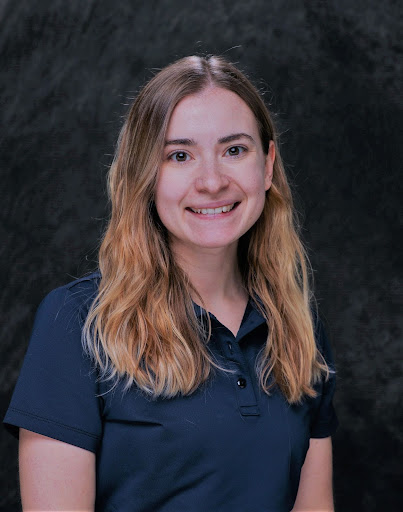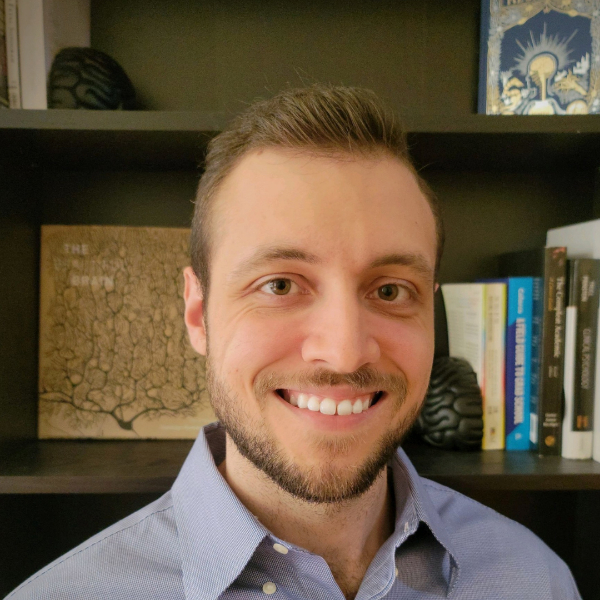Tag: Mental Health
-

A Brief Report of Digital Therapy Platforms
by Vansh Bansal, M.A., Virginia Tech When the COVID-19 pandemic interrupted the traditional provision of psychological services, telehealth sessions became the “new normal:” one large provider, for example, shifted from near-zero to over a thousand telehealth visits per day (Woski et al., 2020). This newfound need for virtual care, coupled with disproportionate lack of mental…
-

The Workday Creep and Your Sleep: Addressing Technology, Communication, and Sleep Health for Graduate Students and Trainees
By Samantha Nagy, M.A., University of Arizona Modern communication methods such as email can make exchange of information easier and more convenient, but it can also blur the lines between work and personal time, particularly for graduate students. Laptops and smartphones are easily accessed in the bed, which can negatively impact sleep duration and quality…
-

What to Know as a Clinician Working with Eating Disorders for the First Time: A Trainee Primer
By Samantha Dashineau, M.A., Purdue University Many clinical psychology programs do not explicitly train graduate student clinicians to work with certain populations, such as those diagnosed with eating disorders. As a result, trainees in these programs are often tasked with finding practicum placements to receive experience treating these populations. There are a variety of considerations that…
-

BDSM 101 for Clinical Scientists
by Caroline Boyd-Rogers University of Iowa Bondage/discipline, dominance/submission, sadism/masochism (BDSM) is commonly associated with a sexual preference for consensually giving or taking control during a sexual encounter. Though commonly seen as a “niche” sexual interest, 76% of a large sample of therapists reported working with at least one client with a history of engaging in BDSM. However, only…
-

Financial Debt and Stress in Clinical Psychology Doctoral Students
by Erica Szkody, Ph.D.* & Steven Hobaica, Ph.D.*** Stony Brook University; ** The Trevor Project Graduate student debt loads are steadily rising, and financial stress remains a significant stressor for many graduate students. In our recent study (Szkody et al., 2022; (N = 912), the average clinical psychology doctoral student loan debt was $76,000 by…
-

Beyond the Curriculum On Beginning Graduate School
by Matt Mattoni, Temple University Beginning graduate school is a unique and complicated experience. There is excitement to work with people who share your interests, the allure of a new city, and above all, the feeling of finally reaching your goal after countless hours of work, stress, and doubt. Conversely, from the immediate “where should I…
-

How Will COVID-19 Push For Telehealth Services in a Post Pandemic World?
by Hanna Nguyen – University of California, Los Angeles (UCLA) The COVID-19 pandemic has undoubtedly affected the entire world in the past two years. From transitioning to online schooling to a myriad of remote job opportunities, individuals of all ages were forced to adjust to the new way of life that the pandemic has caused. Previously,…
-

Using Clinical Psychological Science to Mend Public Trust in Science
by Kathryn A. Coniglio, M.S. & Jessica L. Hamilton, Ph.D., Rutgers, The State University of New Jersey Our country is in the midst of two crises: the COVID-19 pandemic and an “infodemic” of misinformation (World Health Organization, 2021), conspiracy theories, and alternative facts. From the resistance to following scientific advice about virus containment to the January…
-

Why Clinical Scientists Should Care About Genetics
by Sarah E. Paul, M.A., Washington University in St. Louis Psychopathology is moderately-to-highly heritable, with ~30-80% of the population variance in mental illness attributable to genetic influences (Pettersson et al., 2019; Polderman et al., 2015). The field of psychiatric genetics is making new discoveries at an extraordinarily rapid pace, paralleling the dramatic reduction in cost of…
-

Student Perspectives on Culturally Informed Case Formulation
by Jennifer Pearlstein & Alice Hua, University of California, Berkeley Given recent mobilization in response to police killings of Black people, we as clinical scientists are reminded again of the extensive evidence documenting the detrimental effects of racism on mental health (Carter et al., 2019; Paradies et al., 2015; Pieterse et al., 2012). We are trained…
-

Why PCSAS?
A WORD FROM PCSAS LEADERSHIP “The PCSAS Newsletter offers a place where clinical scientists of today and tomorrow can share important thoughts on PCSAS and the field of psychological clinical science.” Alan Kraut, Executive Director, PCSAS “PCSAS represents a commitment by its member programs to train a new generation of clinical scientists who will have the…
-

The Pressures for Work From Home Productivity During COVID-19
by Allison Stumper and Julia Case, Temple University For the past few weeks, we’ve all been experiencing unprecedented changes to our schedules, structures, daily lives, and functioning as our world faces significant trauma in the times of COVID-19. As many adjust to new restrictions prohibiting us from leaving our homes, the boundary between our work and our lives…
-

Self-Care, Occupational Changes, and Social Connectedness During the Pandemic
by Julia S. Yarrington, UCLA In the midst of the COVID-19 global pandemic, our world and lives have changed drastically and rapidly. News sources are constantly updating the public on pandemic-related food shortages, statistics on the spread of the virus, the latest mortality rates, and changes in legislature mandating states or counties to remain home. In light…
-

PCSAS By the Numbers
by Alan G. Kraut, PCSAS Executive Director Here’s all you need to know about PCSAS: 43 10 53 98 4 90 28 15 …

